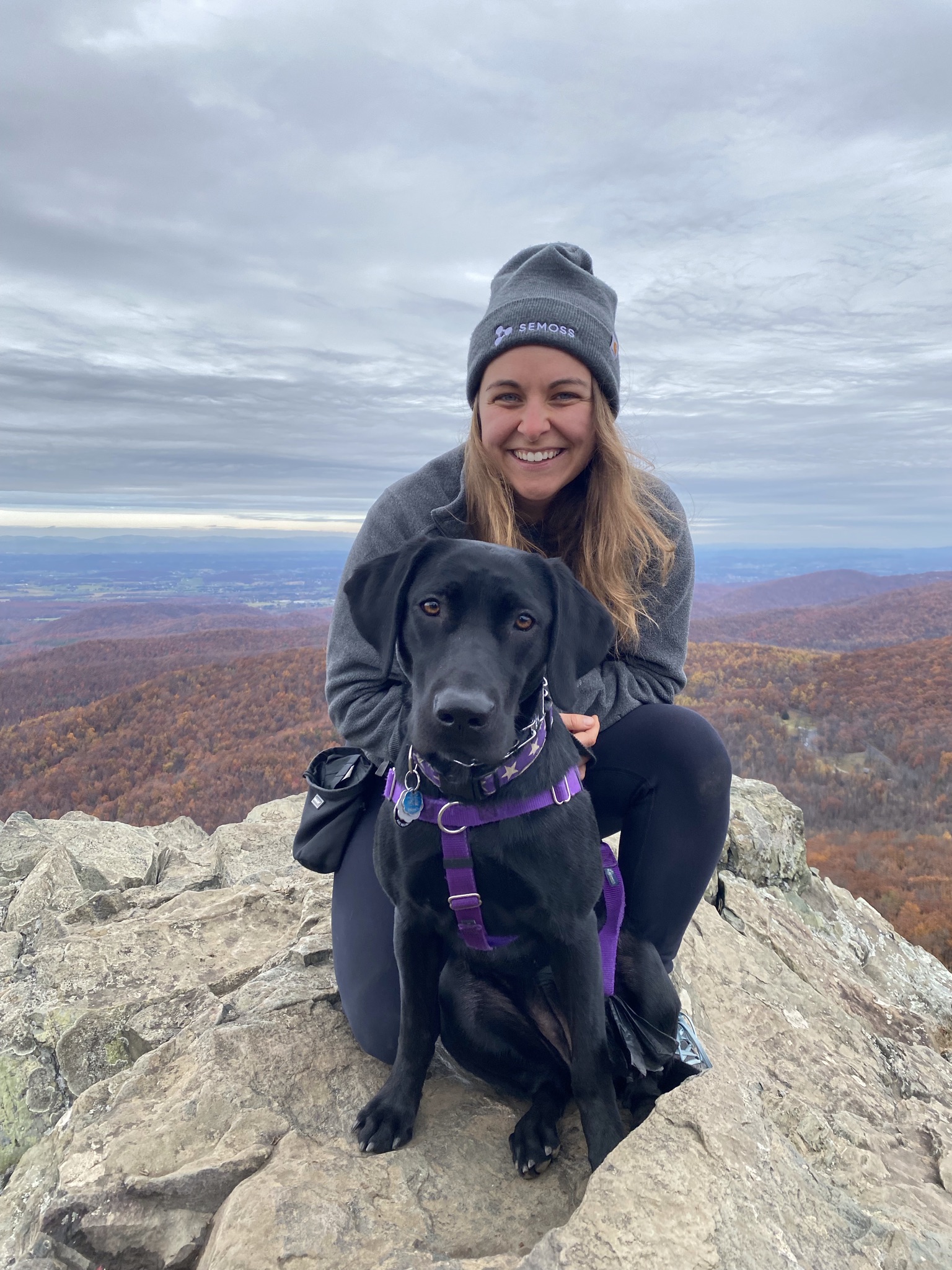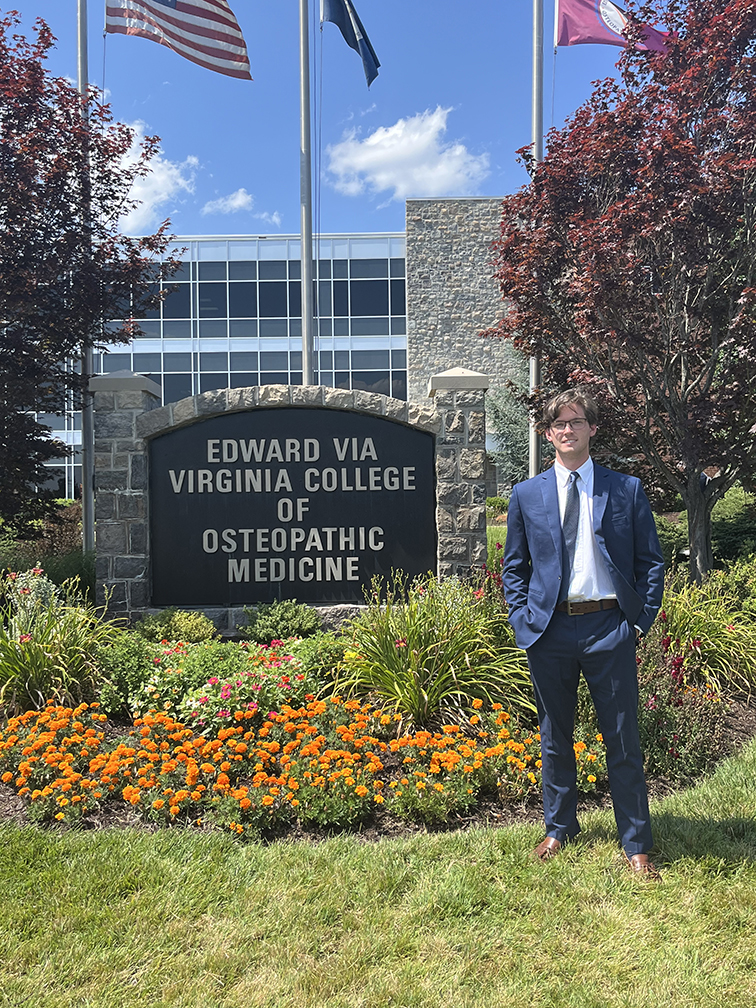How I Got Into Medical School: VCU CERT Alumni Share Success Stories
If you’re aspiring to get into medical or dental school, you likely know it can be challenging and highly competitive. Between standardized test scores, clinical experience and other factors medical and dental schools consider, the standards are high. But just because the process is challenging doesn’t mean professional school is out of reach.
If you want to become a highly competitive candidate, consider the Premedical Graduate Health Sciences Certificate (CERT) program. Offered through the Virginia Commonwealth University School of Medicine, this yearlong, in-person graduate-level program offers opportunities for you to increase your chances for admission into professional school. Completing the program can set you apart in numerous ways, according to CERT alumni Rachel Fry and Matthew Gunn. Below, they share their experiences and tips for how to prepare for medical or dental school.

VCU CERT Alum Rachel Fry: “Be in 100%”
Rachel Fry, a 2022 graduate of the VCU CERT program, is now part of the VCU School of Medicine’s Class of 2027. After completing CERT, Rachel worked as a CERT program coordinator and in the VCU Emergency Department documenting patient encounters as a scribe. These roles provided her with valuable experience and insights into the medical field.
For those wondering how to get into medical school, she emphasizes the importance of preparation and persistence. Medical school is a fast-paced environment with challenging coursework, and Rachel knew that to prepare, she’d need to get back into the routine of full-time classes after being out of school for several years. She chose VCU’s pre-med certificate program to help her succeed.
“The CERT program was a great exposure to graduate level coursework,” she shares. “Since I was over six years removed from undergrad, I found it helpful to be back in a full-time program and get into the rhythm of school again. The speed of the CERT program content and the fast turnaround between exams helped me learn how best to stay on top of my studies.”
Rachel is now in her second year of medical school and says her CERT courses helped her prepare.
“The content in CERT was beneficial for my first year of med school,” she adds. “Some of my best exam grades came in courses that I had taken that were similar to courses in CERT, such as physiology, biochemistry and anatomy.”
The VCU CERT curriculum includes required courses in biochemistry and molecular biology, histology, and physiology, and electives such as human anatomy, clinical pharmacology, embryology, and neuroanatomy. The aims of the program are to reinforce your expertise in the foundational sciences, strengthen time management and study skills in rigorous graduate-level courses, and prepare to excel in professional school.
- Rachel Fry
But the best way to prepare for medical school or dental school? Study and commit to getting in, Rachel says.
“The study skills, habits and routines are what prepared me best for medical school. You learn how to be a professional student and the sacrifices that come with that. My free time was spent studying, and studying efficiently, which is exactly what I have replicated successfully in medical school thus far,” Rachel says.
“Know what you are committing to before going,” she adds. “Med school is very hard, and you need to be willing to sacrifice a lot of other things to give all of your time to this and your future career. You need to be in 100%.”
 VCU CERT Alum Matthew Gunn: Build Good Study Habits and a Strong Academic Resume
VCU CERT Alum Matthew Gunn: Build Good Study Habits and a Strong Academic Resume
Matthew Gunn is another successful alum of the VCU CERT program. A 2023 CERT graduate, he is now a first-year medical student at Edward Via College of Osteopathic Medicine (VCOM) in Blacksburg, VA.
Prior to the CERT program, Matthew says he struggled to maintain good study habits and time management skills, which are critical for preparing for the demands of medical school and other graduate work.
“The CERT Program taught me how to study more effectively. It offered a second chance to sharpen those habits and prepare me for professional school. I can confidently say that without the CERT program, I would lack the study habits necessary to succeed in medical school.”
Like Rachel, Matthew cites the importance of taking courses aligned with your first year of medical, dental or graduate school. Taking courses in cell biology, biochemistry, immunology and histology through CERT prepared him for graduate-level courses in those areas, he says. Now that he’s in medical school, that preparation allowed him to put more time toward studying new or more difficult subjects.
Another way to prepare for medical school? Get clinical and volunteer experience, which CERT provides.
“Having the hospital right next door to VCU provides easy access to shadowing and clinical jobs such as scribing,” Matthew says. “The CERT program has partnerships with local organizations so that students can easily find volunteer opportunities. The program truly provides everything you need to be a successful medical school applicant and student.”
However, Matthew cautions, make sure you don’t let your studies slip.
- Matthew Gunn
“The most important aspect of the program is academics,” he maintains. “This needs to be your top priority. After you figure out study habits that work well for you, then you can begin taking advantage of those extracurriculars. Having a routine and staying organized worked well for me. I would encourage students to try to volunteer once a week, depending on their exam schedule. If you feel you are putting too much on your plate with extracurriculars, go back to focusing solely on courses.”
Improve Your Chances With VCU CERT
The stories of Matthew and Rachel illustrate that if you are able to put in the work, it can pay off. VCU CERT is here to help you bridge gaps between undergraduate studies and medical, dental or graduate school, by providing essential tools, support and learning opportunities help you get admitted. From shadowing and clinical experiences to advising and personalized support, the VCU CERT program helps you become a more competitive medical or dental school applicant.
“In addition to academics, the CERT Program at VCU has so many resources available to sharpen your professional school application,” Matthew adds. “The immediate access to advisors and near-peer mentors was the biggest advantage of the program. The medical school application process is long and complicated and having mentors available really took away a lot of the stress of figuring out what I needed to do to apply and be successful.”